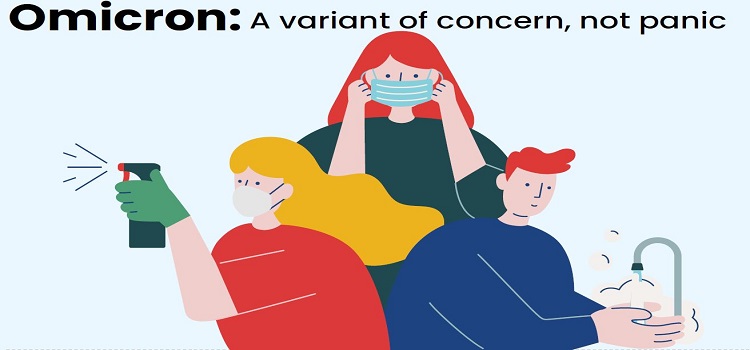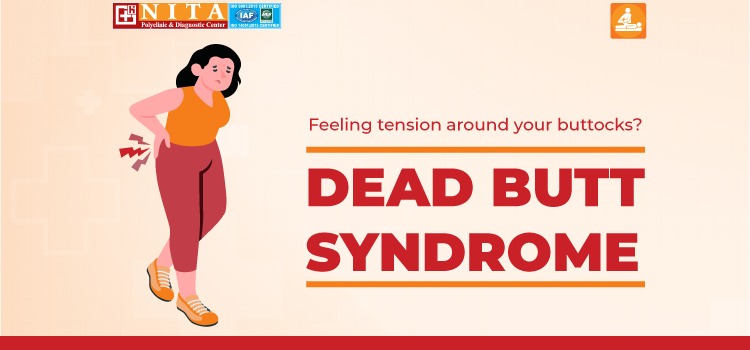Omicron: A variant of concern, not panic
- 2021-12-17
What is Omicron?
Omicron (scientific name B.1.1.529) is
the new COVID variant, first reported by the South African scientists to the
WHO on 24th November, 2021
Highly mutated variant Around 50
mutations in total. 26-32 changes in the spike proteins alone [1]. Spike
protein is a structure on the virus surface that helps viruses enter body
cells. Notably, the Delta variant had around 17 mutations including 9 on the
spike protein.[2] Classified as a “Variant of Concern” (VOC) by the WHO on 26
November 2021.[3] Previous VOCs include Alpha, Beta, Gamma, and Delta.
Why is Omicron a Variant of Concern
(VOC)?
The WHO has designated a system for
tracking emerging COVID variants and how they pose risk to global public health.
A VOC is the highest category in this tracking system. Early data suggests that
Omicron may be associated with:
·
Increase in transmission rate
·
Decrease in effectiveness of vaccine or
evasion of immunity acquired through previous COVID infection or vaccine
A quick look at the increase rate,
published by the WHO on 7 December 2021[4]
South Africa reported a 311% increase
in new cases between 24th to 30th November, as against the previous week.
Cases increased by 375% week on week
in Gauteng, the country’s most populous province. Globally, more than 57
countries detected the variant till 8 December 2021, including India.[5]
Does the Omicron variant of COVID-19
spread too fast?
Very likely [1,6,7]
·
The reports from South Africa Indicate that
Omicron has far greater transmissibility and is infectious than possibly all previous
variants.
·
Has greater than 2X the number of bad changes
on spike proteins than the Delta variant.[7]
·
However, more evidence is required to support
this.
Are the Omicron symptoms any different
than the other COVID variants?
·
No unusual symptoms reported as yet. [8]
·
As per Dr. Angelique Coetzee, South African
Medical Assn. Chairperson, who is also credited to detect the first case of
Omicron [9]:
“Omicron
symptoms would mostly be fatigue. It would be body aches & pains. Some of
them got quite a severe headache & tiredness. But nobody mentioned loss of
smell/taste, severely blocked nose or severe temperature.”
·
Some people may have no symptoms. More data
and research are awaited.
Can currently available RT-PCR Tests
detect COVID infection with Omicron?
·
Yes, just like other COVID variants
·
RT-PCR can detect COVID infection but not the
type of variant causing it. Confirmation of the variant only comes through
genome sequencing.
·
RT-PCR tests typically detect at least 2-3
different COVID genes. This serves as a backup in the case of a mutation
arising in one.[3]
Are current COVID treatments still
effective against Omicron?
·
Yes, no change has been reported yet in
current COVID-19 treatment protocols and therapeutics.
·
However, additional scientific studies are in
progress to understand whether some specific drugs would work against the
variant or not.
Will the immunity gained through vaccines
or natural infection remain effective?
·
However, infections in fully vaccinated
(vaccine breakthrough) and previously infected people (re-infections) are possible.
[10, 11]
·
The breakthrough infections and re-infections
are possible with previous variants as well. More data and research are awaited
to know whether these rates are higher with Omicron.
·
Based on current understanding, vaccines remain
effective to prevent severe disease, hospitalization and deaths. [10, 11]
Have no doubts: COVID Vaccination is
crucial.
·
Vaccination and natural infection lead to the
formation of neutralizing antibodies in the body. Mutations may make it harder
for these antibodies to target and kill the virus.
·
However, immunity acts not only by
neutralizing antibodies but also by T-cell response. T-cells are a type of
immune cells that can target and destroy viruses.
·
This cellular immunity, beyond antibodies,
continues to impart protection.
Note:
There is emerging scientific evidence
that the hybrid immunity of natural infection and vaccine induced immunity
continue to provide protection from the Omicron variant as well.
1.
PIB Briefing. Dated December 2, 2021
https://www.youtube.com/watch?v=4u29-xWkPfY
2.
https://gvn.org/covid-19/delta-b-1-617-2/
3.
https://www.who.int/news/item/26-11-2021-classification-of-omicron-(b.1.1.529)-sars-cov-2-variant
of-concern
4.
https://www.who.int/publications/m/item/weekly-operational-update-on-covid-19---7-december-2021
6.
https://sacoronavirus.co.za/2021/11/29/presentation-what-we-do-dont-know-about-the-omicron-variant-salim-s-abdool-karim-frs/
https://www.ecdc.europa.eu/sites/default/files/documents/threat-assessment-covid-19-emergence-sars-cov-2-variant-omicron-december-2021.pdf
7.
https://www.nature.com/articles/d41586-021-03614-z
8.
https://www.nicd.ac.za/frequently-asked-questions-for-the-b-1-1-529-mutated-sars-cov-2-lineage-in-south-africa/
9.
https://twitter.com/ANI/status/1466456912749162507?t=xGKpBr16IHxcuyLWsOFtdw&s=09
10.
Omicron SARS-CoV-2 variant: a new chapter in
the COVID-19 pandemic. www.thelancet.com Published online December 2, 2021
https://doi.org/10.1016/S0140-6736(21)02758-6 1
Pulliam, R. C. J. et al. Preprint at MedRxiv https://doi.org/10.1101/2021.11.11.21266068 (2021).
Medically Reviewed by
Ramendra Kumar Raman, PhD, Clinical Research



























Leave Comment